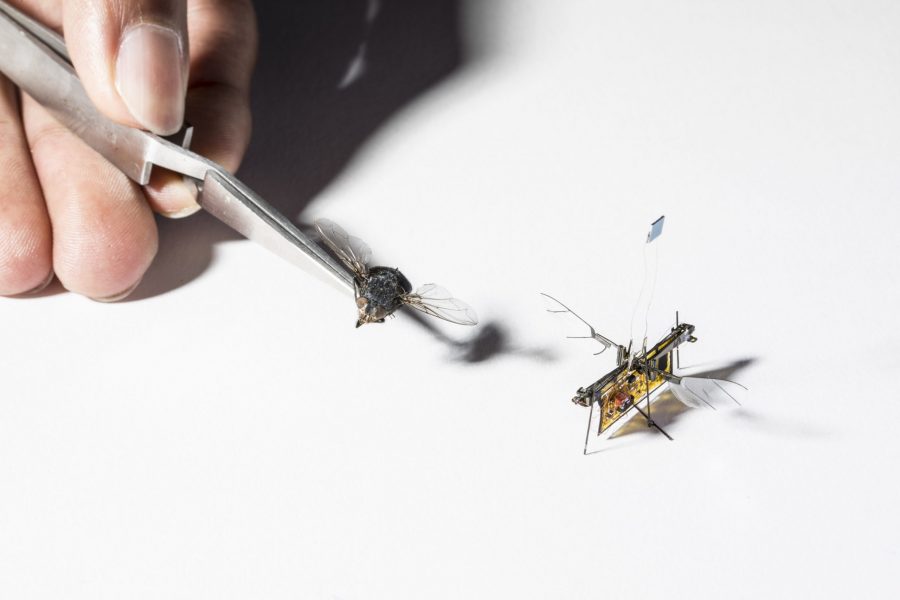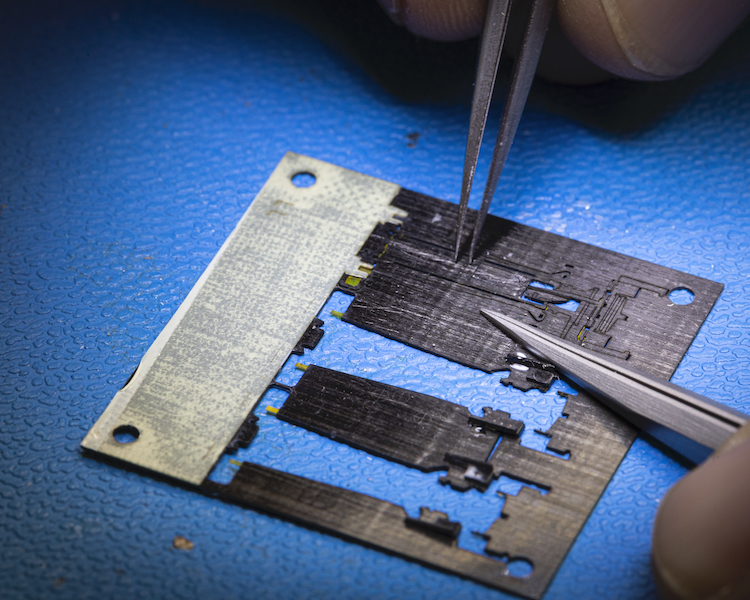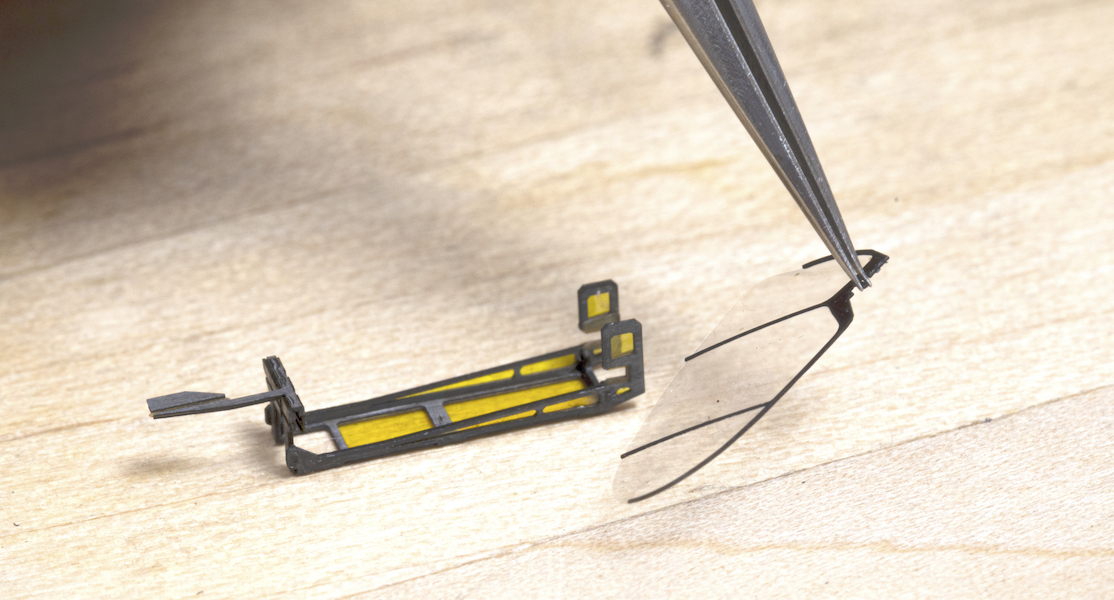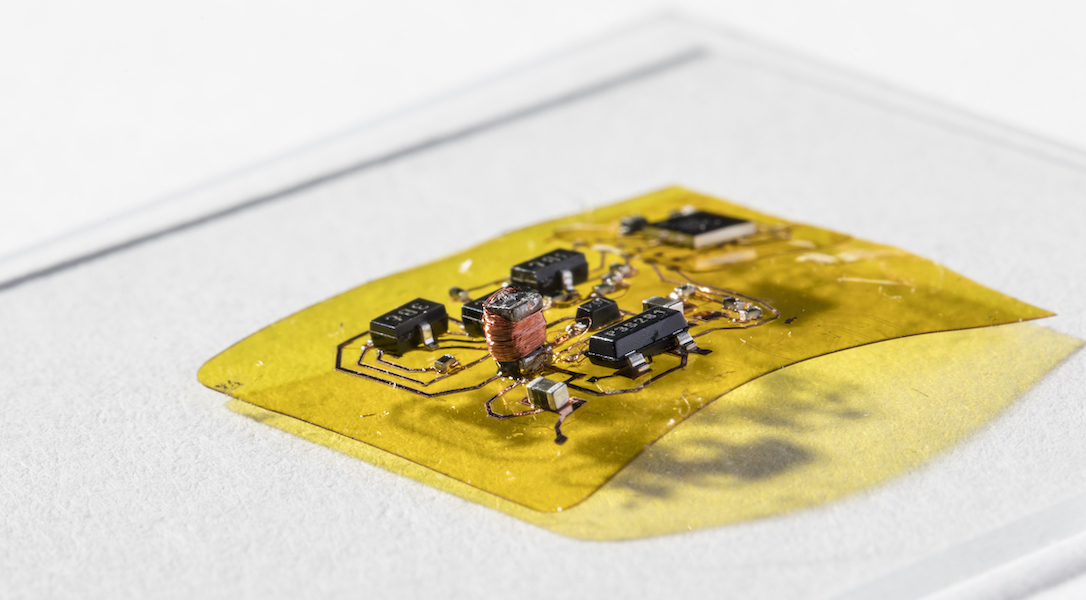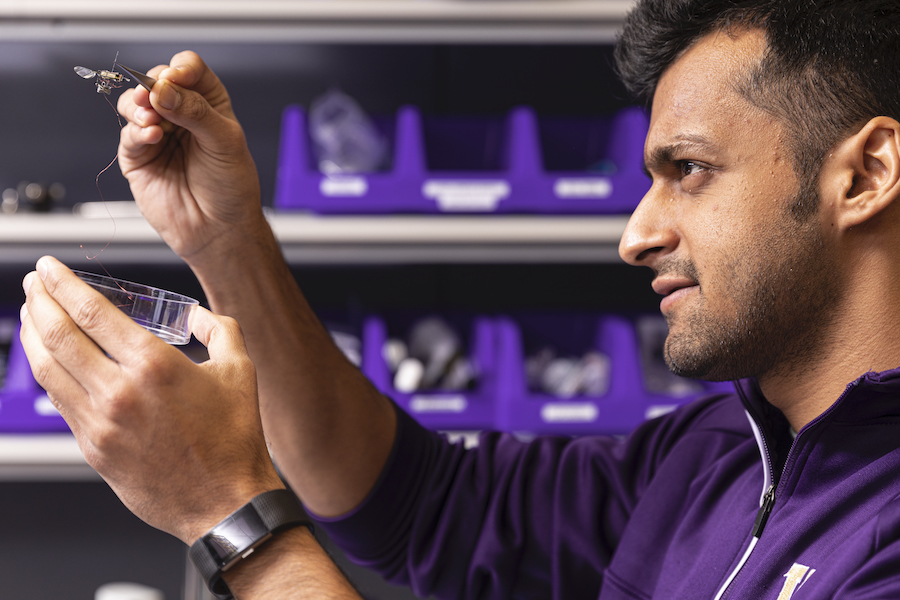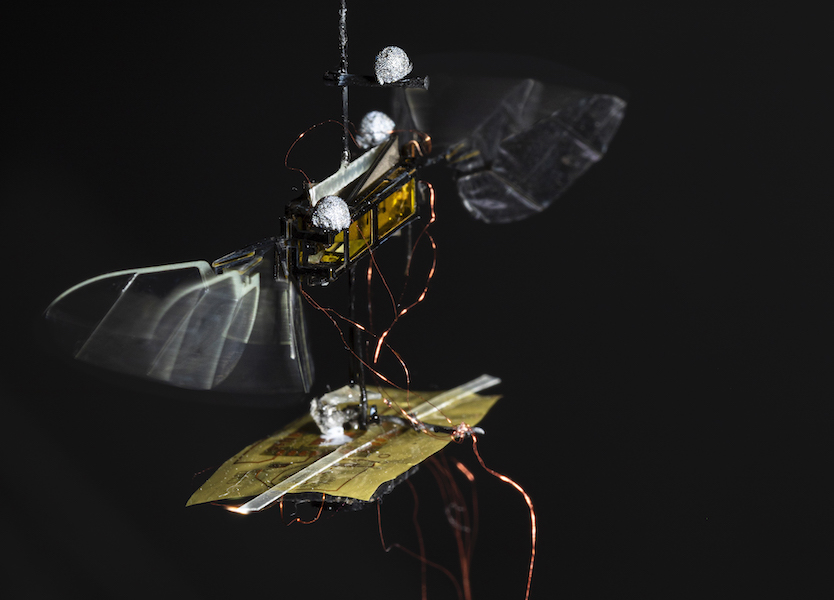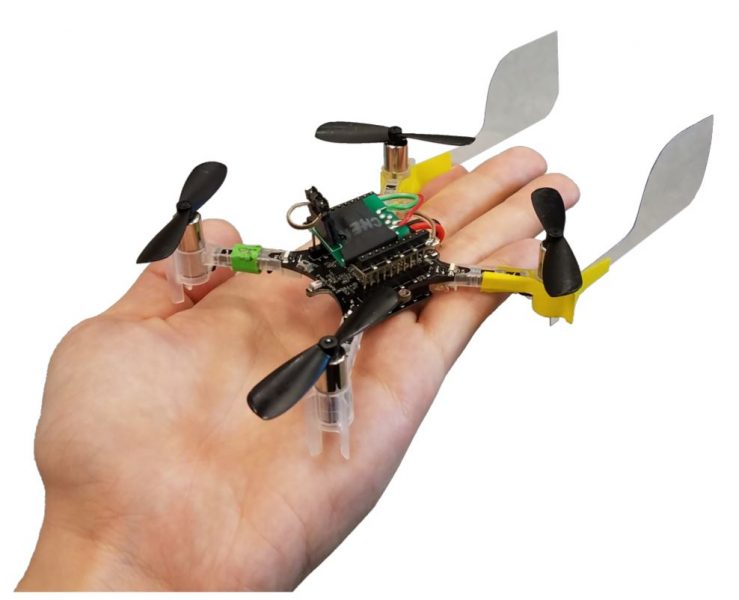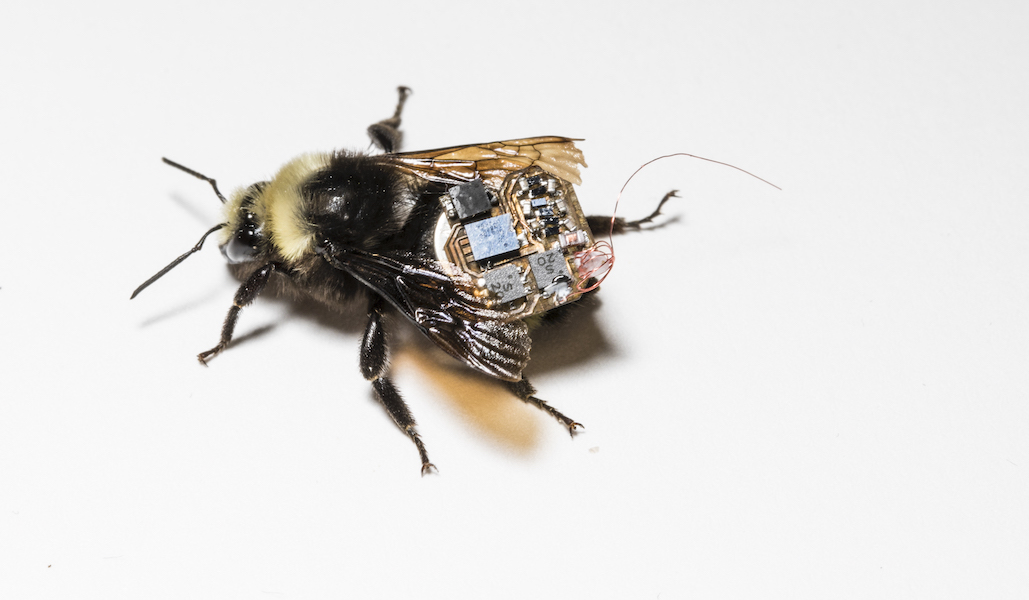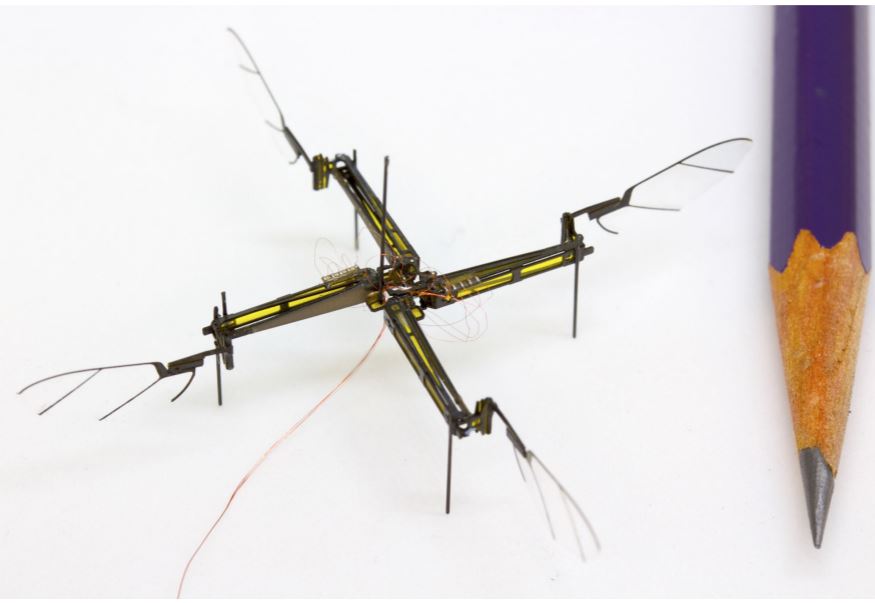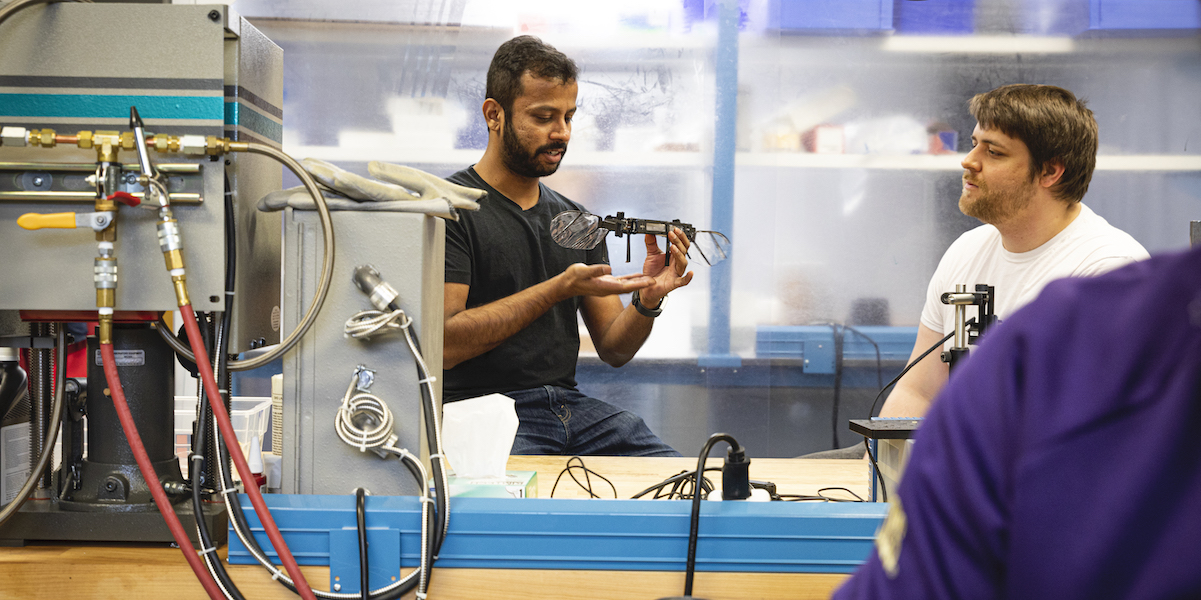Design, control, power systems, and applications for insect robots.
The University of Washington Autonomous Insect Robotics Laboratory (AIR Lab) aims to advance our understanding of how to create self-contained, fully autonomous robots the size of insects. Our approach starts with a deep appreciation for biology and flying insects. These animals regularly perform jet fighter-like maneuvers, doing so using a brain whose neurons number in the hundreds of thousands. But they go beyond this. They leverage unsteady flows from their flapping wings to perform even more sophisticated feats using an avionics suite consisting entirely of solution-processed organic material, and they can find their way to odor sources from miles away.
We see flying insect robotics as not only a tool to better understand how biological organisms perform some of their most impressive feats, but as an opportunity to advance the state of art in engineering and robotics. Many technologies that are successful in larger robots cannot be reduced to insect scale because different effects begin to dominate the governing physics. For example, small animals like flies and hummingbirds flap their wings continuously rather than gliding. These "phase transitions" challenge us to create new technology that is compatible with the extreme size, weight, speed, and power (SSWaP) constraints implied by sub-gram aerial robots. The results will have application anywhere there is need for lightweight and power-efficient systems.
Finally, insect robots will have capabilities not shared by other types of robot, which will enable new applications for robots. Their power requirements are tiny, allowing them to harvest power from a greater diversity of sources including solar and indoor lighting. Their low mass makes them inherently safe around humans. Applications will range from collective assembly to space exploration, but the most promising is something akin to a weather balloon for low-altitude urban or agricultural settings. Equipped with the ability to sense the air, flying insect robots will fly indoors and out to detect where air is unhealthy or stagnant, find emissions of hazardous gasses, or detect disease or fire in foliage.
The laboratory is directed by Prof. Sawyer B. Fuller and has facilities to micro-fabricate and control aerial and ground-based robots.
News
April 2024 Congratulations Alyssa Giedd who was awarded a prestigious National Science Foundation Graduate Fellowship!
September 2023 Prof. Fuller is Co-PI on a new $4.3M award to obtain chemical specificity -- the ability to follow a specific chemical of interest -- on a drone by recording from neurons in the the antennal lobe of an onboard insect. By contrast, the Smellicopter sensed signals from the antenna itself. PI is biologist Barani Raman at Washington U. Thank you NSF!
May 2023 Awarded a planning grant from the NSF, PI'd by Amit Trivedi (U Illinois), to create ultra-low power state estimation technologies using custom 2D semiconductor technology. Thank you NSF!
January 2023 Congratulations Alissa Giedd on receipt of a prestigious Ford Foundation Fellowship!
December 2022 Congratulations Yash Talwekar, and collaborators Prof. Vikram Iyer and Prof. Kat Steele on a $10k award from the U. Washington Comotion Innovation Gap Fund for our Wearable Motion Tracker!
November 2022 New article comes out in Science Robotics on a flight control and wind estimation system for robots as small as a gnat!
June 2022 Congratulations Dr. Melanie Anderson for receiving the Department of Mechanical Engineering's Distinguished Dissertation Award for 2022!
June 2022 New review article, Insect-inspired artificial intelligence for autonomous robots appears in Science Robotics
January 2022 Congratulations Dr. Melanie Anderson, Nishant Elkunchwar, Suvesha Chandrasekaran, Vicente Arroyos, Kyle Johnson, Yash Talwekar, and Alyssa Giedd for obtaining advanced degrees from UW
April 2022 Congratulations Yash Talwekar, Nishant Elkunchwar, Suvesha Chandrasekaran, Johannes James, and Yogesh Chukewad on recent paper acceptances at ICRA, RA-L, TRO, and ICUAS
January 2022 Congratulations Melanie Anderson for receiving a Commercialization Postdoctoral Fellowship at U. Washington's Comotion!
November 2021 Congratulations Alyssa Giedd on receiving a prestigious Mary Gates Fellowship!
September 2021 Congratulations Vikram Iyer on starting a new position as Assistant Professor in the Paul G. Allen School of Computer Science!
August 2021 Funding awarded from the NSF's Foundational Research in Robotics program to create a visual flight controller for insect-sized flying robots. Thank you NSF!
July 2020 Congratulations Vikram Iyer and Johannes James! Science Robotics article on insect-scale steerable vision is released.
March 2020 New site goes live!
April 2018 Congratulations Melanie Anderson for winning the prestigious NDSEG fellowship!
Feb 2018 Thank you U Washington Royalty Research fund! "Aerial insect robotics powered by human-safe magnetically-coupled wireless power transfer"
April 2017 Prof. Fuller selected to speak at the ME seminar series, by popular vote of UW ME faculty

